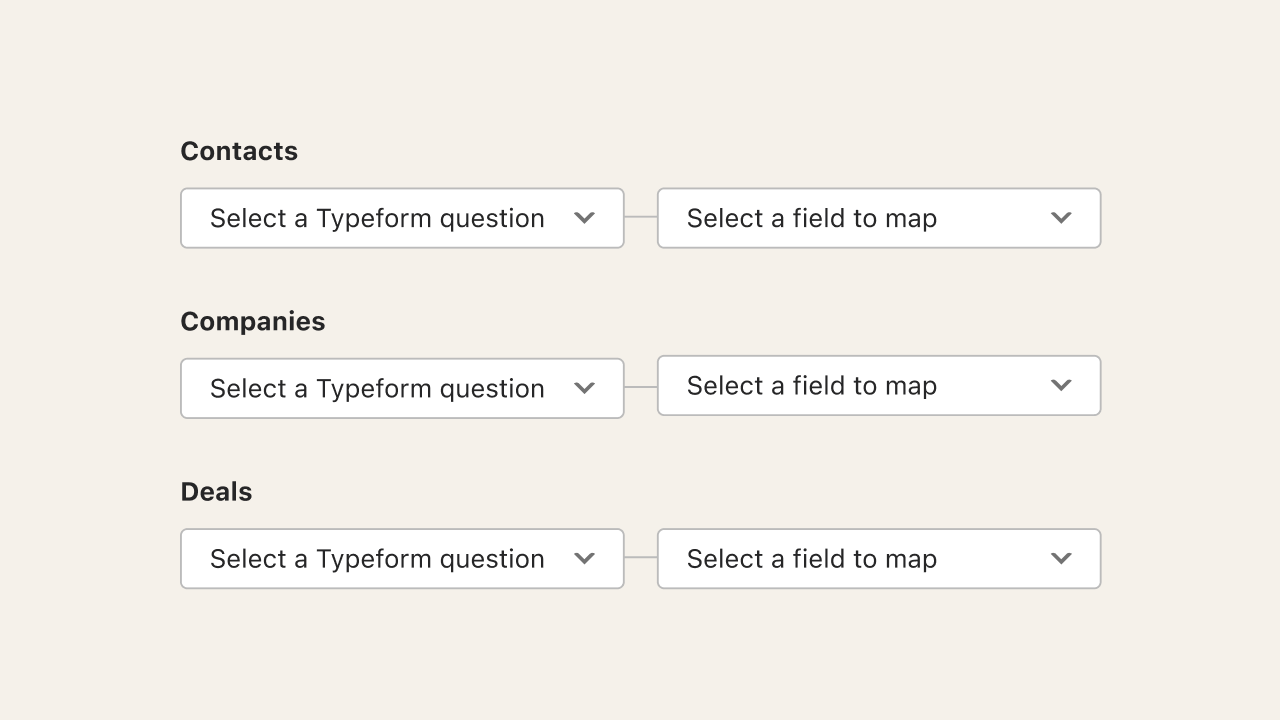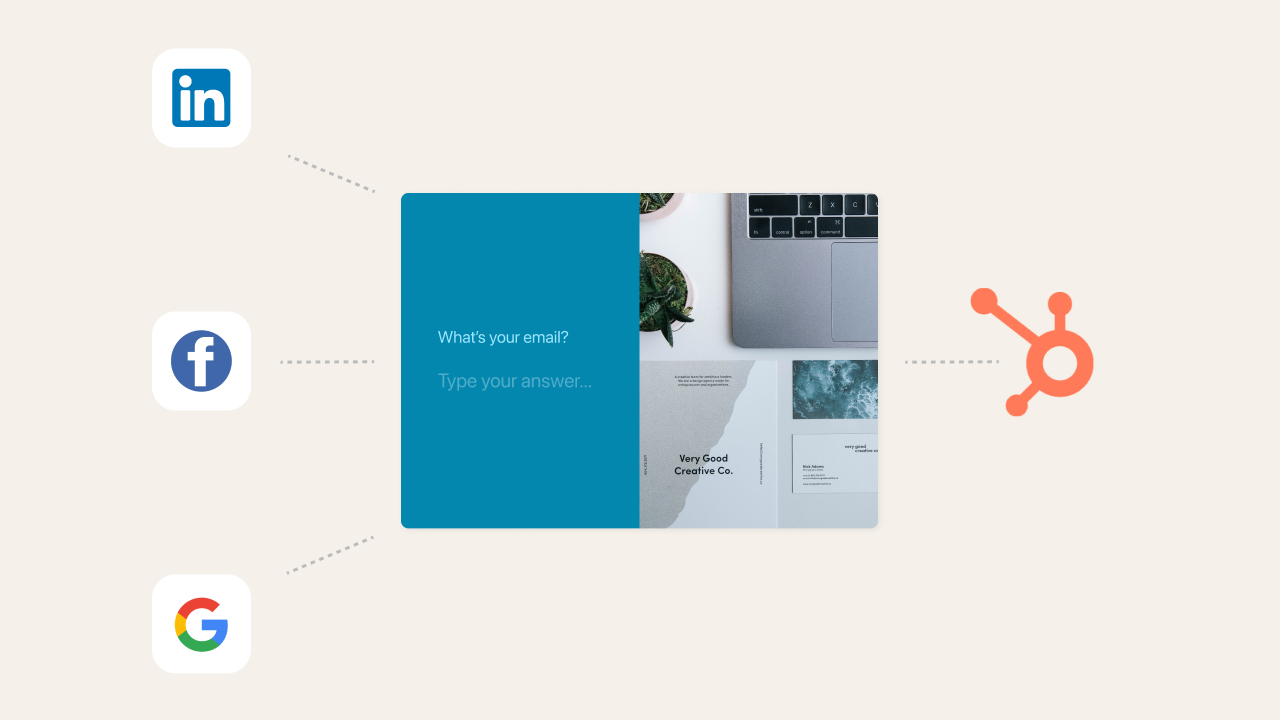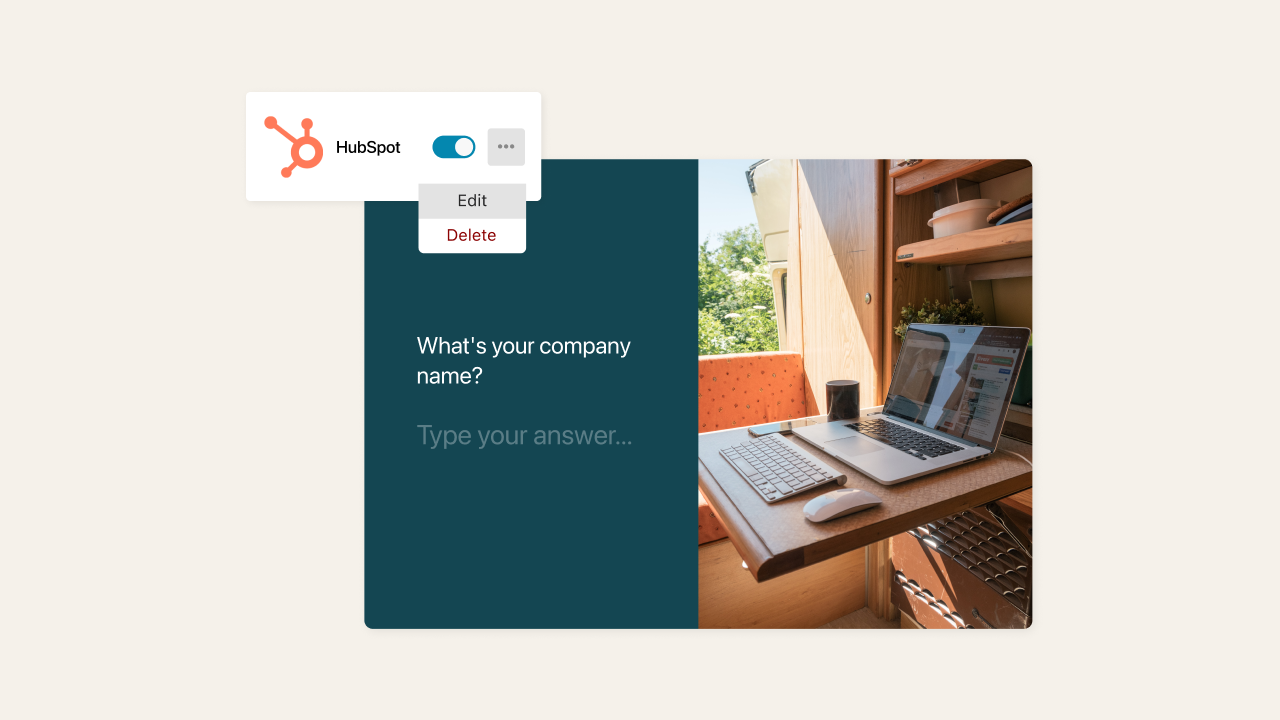Guides
3 Ways To Improve Lead Generation With Typeform and HubSpot
Here’s how the Typeform integration with HubSpot helps small business owners, marketing teams, and sales teams of all sizes connect with their customers and improve workflows.

Data collection is an essential step in inbound marketing—but it’s also one of the most challenging. Marketers can only lead a prime, personalized lead gen strategy with the most reliable and relevant customer data: the kind they can trust.
But when people are gasping for air amidst online forms and research, how can brands break through? Engage prospects? Provide value as they pick up data along the way?
Two evolutions are happening side by side. One is the brand-customer interaction; another is the tools required to capture leads from those interactions. Without advanced software that can convert at scale, you may find it harder to craft digital forms that leads will actually complete. Or you may find you’re spending hours manually uploading, downloading, and comparing data to get a clear picture and take action.
However, there’s a beautiful combination for saving time and working smarter.
How Typeform and HubSpot optimize your data collection
Typeform and HubSpot are powerful on their own, and even better together. The intuitive, conversational nature of Typeform is a great match for HubSpot’s data collection and contact management capabilities. When combined, they help teams build stronger, longer relationships through any campaign.
The Typeform integration with Hubspot eliminates the need to hunt down and manually gather data, and makes it engaging for people filling out forms—typeforms are designed to feel like conversations, rather than tasks. All the Typeform data lives in HubSpot and can be incorporated into workflows, sequences, lead nurturing, marketing analysis, and customer success initiatives.
Here’s an overview of some of this integration’s key benefits—for your marketing and sales teams, and for your customers.
Beautiful, interactive forms are more engaging
Typeform makes it easy for teams to craft beautiful, friendly lead gen forms that are on-brand and optimized for mobile and conversion. Marketing and sales teams can use typeforms for:
- Lead generation
- Tracking and segmenting the customer journey
- Cutting time to conversion
- Improving content engagement
- Gathering data on prospects, leads and website visitors
And because typeforms have been shown to get higher completion rates, they’re a perfect way to feed valuable new leads and data into your Hubspot CRM.
Customers benefit when you connect the dots
The integration saves you work by mapping questions from typeforms to HubSpot properties, in a way that' s customized to your business goals. That means no more manual mapping for each property. Instead, Typeform data automatically syncs to HubSpot, materializing in dashboards.
Multiple records then accrue across Contacts, Companies, and Deals from a single form response. This ensures all of your team members get their hands on shared, centralized data.
When all teams are using the same data, customers have a better experience. For example, you’ll never be in danger of sending a new customer a free trial email. Instead, they might get a welcome message. A quick product guide. It’s far more aligned and personal.
Segmented audiences breed better results
To find out exactly where your leads are coming from, add your UTM parameters into Typeform, then watch tracking info feed into your HubSpot CRM.
After that, create your forms. Segment nurturing by outcome or score the results to direct personalized, optimized follow-up communication.
Okay, so we’ve talked about the results of smarter lead generation. But what about doing it? How do you master both of these tools? Here are those 3 tips we promised:
1. Automate your CRM records
Keeping lead information in your CRM allows sales teams to close deals at the perfect moment. Users can create a variety of CRM records (Contacts, Companies, or Deals) within the Typeform app, which are automatically updated when customers answer typeforms.
You can also add Company and Deal objectives, broadening data fields and qualifying prospects. Then it’s just a matter of setting up workflows (to send emails, book meetings, etc.) within HubSpot, triggered by a typeform submission.
2. Increase marketing source visibility
Source visibility—understanding exactly where your leads are originating—is vital for optimized marketing campaigns. Meanwhile, it constantly improves conversion and long-term retention rates. Seeing the referral source helps marketers generate leads and streamline existing workflows.
With Typeform’s HubSpot integration, users can track the source that guides prospects to a typeform. This information is automatically sent to your HubSpot CRM when a contact record is created.
3. Streamline form workflows and operations
If you edit a typeform’s content while using an integration, it might take longer than you realize to set it up again. The good news is, HubSpot users can edit their forms and marketing quizzes without needing to delete and resync. Changes hit any live typeform.
Just edit the integration to re-map modified fields to the corresponding fields in HubSpot. For instance, you could make changes to typeforms (adding, deleting, or tweaking lead qualification questions) or your HubSpot setup (changing properties) without manually pushing the changes through.
Of course, these are just three top suggestions—more gems await for your lead gen strategy. To chart a course to optimization with interactive forms, surveys, and quizzes, try out the Typeform integration with HubSpot.






